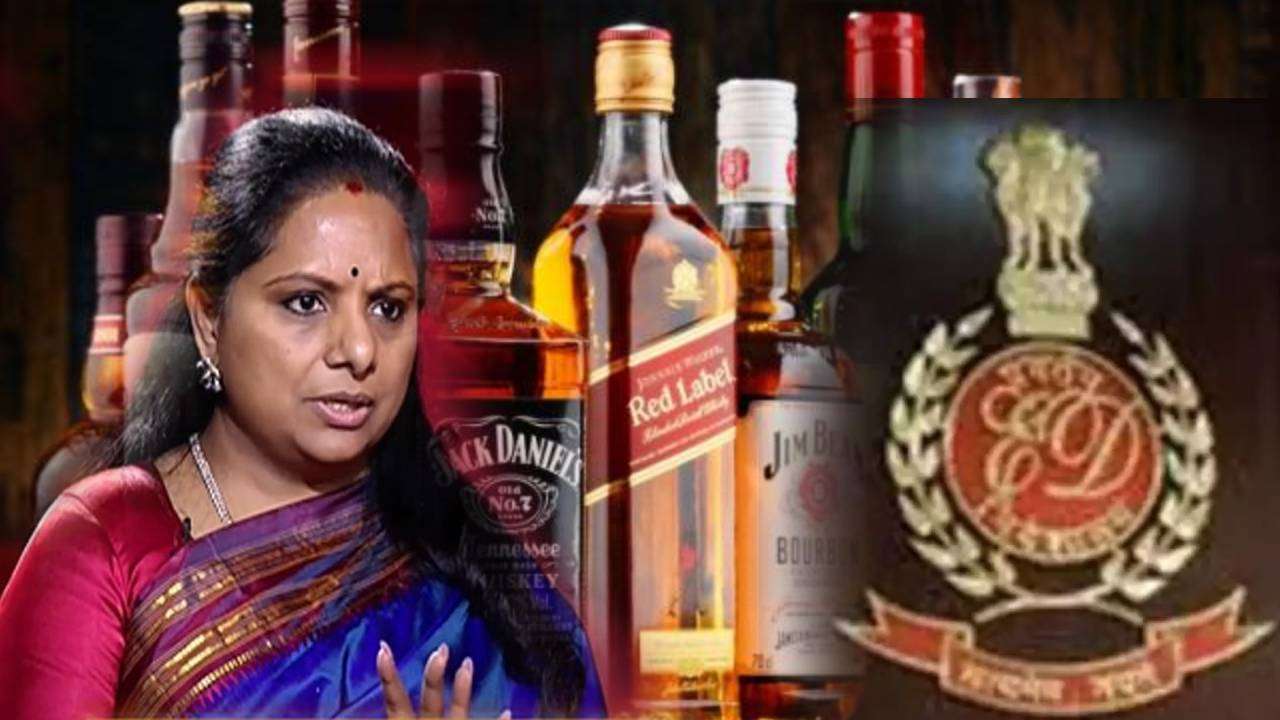K Kavitha’s Biggest Victory : Delhi Liquor Case
The Delhi Liquor Case scam has been among the major controversies in Indian politics, with the involvement of some big political figures and a few high-profile arrests. One indeed involves Bharat Rashtra Samithi (BRS) leader K Kavitha right in the middle of the case. Her arrest and subsequent fights through courts have been a constant news story over recent times. This article looks at all aspects of the scam, the ensuing courtroom drama, and brings forth the results of the recent Supreme Court verdict regarding granting bail to K Kavitha.
2. Background of the Delhi Liquor case Scam
What is the Delhi Liquor case Policy?
The Delhi Liquor Case Policy, aimed at streamlining the existing liquor distribution system and augmenting government revenues, had barely entered the public domain when it immediately moved into controversy. The allegations of corruption and irregularities in the implementation of this policy led to investigations by multiple agencies.
Controversies Surrounding the Policy
The policy also received criticism for being biased to some private entities and causing losses to the government in terms of revenue. However, this was exacerbated by the alleged interference by political leaders into the policy for personal gains.
3. Key Arrests and Legal Proceedings
Timeline of Key Arrests
These legal processes were initiated with the arrests of a few major figures, namely Delhi’s Deputy CM, Manish Sisodia, and BRS leader K Kavitha, among others. Their arrests are linked to the purported scam in the excise policy.
The Role of the Enforcement Directorate (ED) and Central Bureau of Investigation (CBI)
Raids and collection of evidence against the accused were conducted by the ED and CBI. Their action has been very central in this unfolding legal drama, which has so far led to several arrests and court cases.
4. BRS Leader K Kavitha’s Involvement
Background of K Kavitha
K Kavitha is a strong political leader from Telangana and daughter of Telegu radical leader BRS, who was in the limelight of this scandal. So, her involvement in the Delhi Liquor Policy fraud was really shocking for many people who know her politically.
Her Alleged Role in the Scam
K Kavitha was accused of being part of the so-called “South Group” which was accused of paying huge bribes for the grant of licenses to operate liquor shops. The accusation listed against her includes tampering with the evidence and money laundering.
5. Supreme Court’s Decision on Bail
Overview of the Supreme Court’s Bail Grant
On, the Supreme Court granted conditional bail to K Kavitha after being in prison for more than five months. The court cited the major reason for granting bail to be delays in the hearing of the trial and the completion of investigations.
Conditions Imposed on the Bail
She was released on very strict bail conditions, including the surrender of the passport, an order not to tamper with evidence, and a posting bond. As is evident, the court took all necessary precautions with due consideration to legal norms along with humanitarian concerns.
6. Arguments Presented by the Prosecution
Prosecution’s Stance on K Kavitha’s Involvement
The prosecution referred to K Kavitha as “deeply involved” in the scam, showing that she tampered with crucial evidence in the Delhi Liquor case, including deleting messages from her cell phone. It also pointed out before the court her influential position as a political leader, which was likely to be possible grounds for avoiding the course of justice
Claims Regarding Tampering with Evidence
Another valid argument put forward by the prosecution was that Kavitha had deleted the messages that were critical and reformatted her phone. According to the prosecution, this was done with the intention of destroying evidence. However, on the basis that deletion of messages was a usual behavior, the Supreme Court did not buy the argument.
7. Defense Arguments in Favor of Bail
Defense’s Argument for Bail
The defense has argued that prolonged detention without substantial evidence against K. Kavitha violates her fundamental rights. They cited her status as a mother and ex-Member of Parliament to press for bail consideration.
Points Highlighted by the Supreme Court
8. Comparison with Other Political Leaders Involved
Manish Sisodia’s Bail and Comparison
The other accused in the scam, Manish Sisodia, was also granted bail much earlier, after an order from the Supreme Court, based on similar grounds of delay in completing the trial. In putting the Liquor cases of Sisodia and Kavitha together, one finds that the eclectic approach of the court is akin to such delays in legal proceedings
Arvind Kejriwal’s Legal Status
While K Kavitha and Manish Sisodia were granted bail, Arvind Kejriwal remains in prison on charges in another case filed by the CBI. This is a reflection of how complex and ongoing this legal battle has been.
9. Legal Implications of the Case
Interpretation of the Prevention of Money Laundering Act (PMLA)
The scam in the Delhi Liquor Policy has brought PMLA into sharp focus, especially since the interpretations set by the Supreme Court set wide precedence. Aggrieved questions of how the law should be applied, specifically in women-related cases and those of political figures, have been raised.
The Supreme Court’s Interpretation of Bail for Women
A Supreme Court decision releasing K Kavitha on bail based on special provisions for women has thrown open a debate. The judgment will have significant and far-reaching implications in the times to come, particularly in cases involving women accused.
10. Public and Political Reactions
Reactions from the BRS Party and K Kavitha’s Supporters
Public Opinion on the Bail Decision
11. Analysis of the Supreme Court’s Rationale
Analysis of the Supreme Court’s Remarks
Impact on Future Legal Cases
12. The Role of Media in the Case
Media Coverage of the Delhi Liquor Policy Scam
Impact of Media on Public Perception
13. Future Legal Proceedings
What Lies Ahead for K Kavitha?
Now, with the Supreme Court granting her bail, the immediate future for K Kavitha is to adhere to the conditions set by the court-not tampering with evidence and trying to influence witnesses being among them. The successive stages will be continued proceedings in court as the case works its way to trial, where her lawyers will work to clear her of the accusations.
Potential Future Developments in the Case
14. Broader Impact on Indian Politics
The Impact of the Scam on Indian Political Landscape
The Delhi Liquor case scam has far-reaching ramifications on Indian politics. First, the scam relates to the scourge of corruption and governance and underlines the complication of political and legal interface in high-profile cases. This has brought about increased scrutiny of the political leaders and government policies on common men, affecting public trust that rests in political institutions.





Post Comment